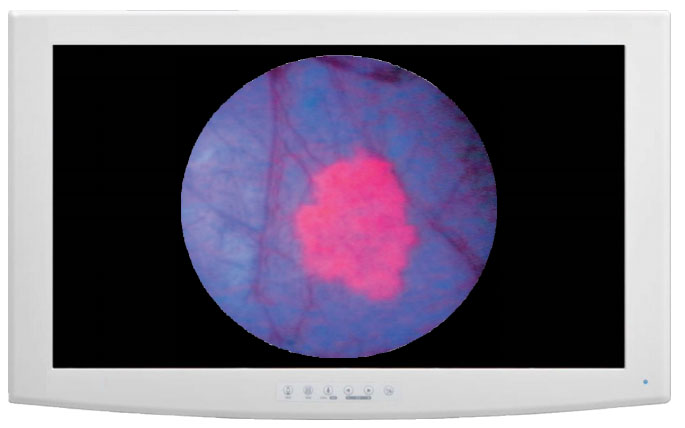The Life Sciences Report: How are the life science stocks shaping up as we near the end of Q2/15?
Pooya Hemami: Biotech stocks have had a very good run year to date. The NASDAQ Biotech Index and the NYSE Arca Biotechnology Index are up. The positive factors fueling biotech investment include low interest rates; favorable demographics, which are benefiting the healthcare sector in general; and investor appetite for high-growth firms.
The good news flow in recent months has included advances in chimeric antigen receptor (CAR) T-cell therapies, immunotherapy, and Biogen Inc.'s (BIIB:NASDAQ) early Alzheimer drug data in March. The $21 billion acquisition of Pharmacyclics Inc. by AbbVie Inc. (ABBV:NYSE) ramped up investor interest.
TLSR: What do you mean by "favorable demographics"?
PH: The aging population of Baby Boomers is driving research in cancer and chronic diseases, as are changes in managed care due to the Patient Protection and Affordable Care Act, which is increasing the need for healthcare therapies, generally.
TLSR: Let's take a tour of the biotech sector according to Edison Investment Research. You cover the sweetener industry. Why?
PH: We like the sweetener industry because consumers are staying away from sugar-laden products due to concerns about diabetes and chronic diseases. Last year, a Qualtrics survey found that 80% of U.S. mothers are more likely to choose a food product if it contains naturally sourced ingredients; we interpret this as increasing unease with the usage of artificial sweeteners or chemicals.
"Biotech stocks have had a very good run year to date."
In that regard, we cover GLG Life Tech Corp. (GLG:TSX), which is seeing double-digit growth for its two naturally sourced, non-GMO, zero or low-calorie sweeteners, which are derived from the stevia leaf and monk fruit. GLG Life Tech's primary business has been selling high-purity stevia extracts to food and beverage industry companies, but starting this year, it began shipping monk fruit extract from its supply chain in China.
TLSR: Is GLG Life Tech making money for investors?
PH: GLG Life Tech's challenge is maintaining profitability as it grows. It is worth noting that the company's research and development (R&D) team has developed high stevia extract-yielding proprietary leaves. This development should lead to a positive EBITDA (earnings before interest, taxes, depreciation and amortization) in 2016, a trend that is also supported by GLG Life Tech's fast-growing monk fruit business. Growth factors will drive capacity utilization, logically.
TLSR: Does GLG Life Tech have much debt on its books?
PH: GLG Life Tech needs to extend terms for much of its $100 million ($100M) in debt, which has been an overhang on the stock in recent years. But management is confident it will enjoy continued lender flexibility, which, combined with a turnaround in free cash flow in its core business, ought to improve the share price.
TLSR: Let's move on to the sleep disorder space. What is new there?
PH: Alexza Pharmaceuticals Inc. (ALXA:NASDAQ) has resumed development for a Staccato-delivered formulation of zaleplon called AZ-007. Zaleplon is an off-patent, non-benzodiazepine drug that can help induce sleep. Alexza is developing AZ-007 as a rapid delivery zaleplon formation for the treatment of middle-of-the-night awakening. The key potential benefit is that people who wake up in the middle of the night do not necessarily want to take a classic insomnia drug, like Ambien (zolpidem) or Lunesta (eszopiclone), since they may end up with residual grogginess the next day. AZ-007 will allow patients to get a rapid dose of zaleplon and fall asleep within minutes of dosing due to the Staccato delivery platform's rapid pharmacokinetics.
The rapid delivery Staccato platform Alexza has validated should help ensure the drug is metabolized more quickly than traditional oral pills, so the patient can expect to be fully alert the next morning. The hand-held Staccato device consists of a heat package with a stainless steel substrate coated by a thin film of an active drug. When the patient draws a normal breath through the device, it rapidly heats and vaporizes the active drug to form a condensation aerosol, which is then inhaled by the patient to permit efficient and consistent rapid drug delivery.
TLSR: Where is AZ-007 at in the approval process?
PH: Alexza plans to do a Phase 2 study in H2/15, which, if positive, will obviously catalyze investor interest. Insomnia affects up to 20% of the population, and studies suggest that occasional middle-of-the-night awakening can affect one-third of adults for whom conventional insomnia drugs are not ideal.
TLSR: Does Alexza have other products?
PH: Alexza's main product is Adasuve, which is a Staccato-delivered formulation of loxapine. It is approved and marketed by Teva Pharmaceutical Industries Ltd. (TEVA:NYSE) in the U.S. and by Ferrer Internacional S.A. (private) in Europe. Adasuve is for rapid, noninvasive treatment of agitation in patients with schizophrenia or bipolar disorder. Sales of Adasuve have been a bit slower than we had hoped given the challenges of getting the drug into various hospitals, but we remain confident that Alexza Pharmaceuticals will grow Adasuve into a profitable and self-sustaining product with potential annual sales of hundreds of millions of dollars.
TLSR: Are there any new developments in the Alzheimer's space?
PH: Biogen released promising Phase 1 data in March for its anti-amyloid monoclonal antibody, aducanumab, which could drive further R&D and biotech pharma investment into treatments for Alzheimer's. Amarantus BioScience Holdings Inc. (AMBS:OTCQB) stands to benefit from increased R&D in the Alzheimer's space. It is developing a blood-based biomarker test called LymPro to more easily diagnose patients with Alzheimer's.
"The aging population of Baby Boomers is driving research in cancer and chronic diseases."
LymPro evaluates the presence of a cell surface marker called CD69 on blood lymphocytes following a mitosis-promoting stimulus. LymPro works on the basis that if the cellular machinery is working correctly, CD69 will be upregulated following the stimulation of lymphocyte cells. However, if CD69 is not upregulated, cellular division dysfunction is likely the result, and Alzheimer's disease is more likely. Amarantus' studies show a decent correlation in this regard, and the company is looking to market LymPro to biopharmas developing Alzheimer's drugs in clinical trials.
TLSR: What is the benefit of early diagnosis?
PH: The idea is to better differentiate those patients who have early or medium stages of the disease versus those who do not. The process is helpful because by the time patients are enrolled in trials, the state of their disease may be too far advanced for an experimental treatment to have an effect. If LymPro can help better identify patients at earlier stages of disease, a wider window will open for an experimental therapy to potentially show a benefit versus placebo.
LymPro has received clearance for investigator use in clinical trials. Amarantus is working on obtaining the approvals that will be needed for it to be used as a diagnostic in primary care and broader medical settings.
TLSR: Does Amarantus have any other products in the pipeline?
PH: Amarantus is developing eltoprazine, which is a small molecule, 5-HT1A/1B serotonin receptor partial agonist. The drug is in Phase 2 development for the treatment of levodopa-induced dyskinesia in patients with Parkinson's disease.
Levodopa is one of the most commonly used treatments for Parkinson's, but after five to 10 years, many patients experience random involuntary movements. Eltoprazine aims to treat the dyskinesia by dampening excess dopamine release, and it has already shown positive efficacy versus placebo in a Phase 2a trial with more than 200 patients. Amarantus recently started a 60-patient, Phase 2b study, and the data could be available next year. That could open up partnership opportunities.
The Parkinson's Disease Foundation estimates that more than 1M people have Parkinson's disease, and about half of them will develop dyskinesia. There is definitely a fair market for this type of drug.
TLSR: What are you looking at in terms of chemotherapy?
PH: CytRx Corp. (CYTR:NASDAQ) has a lead product called aldoxorubicin. The drug combines doxorubicin, which is an established, off-patent chemotherapy, with a linker that binds to circulating albumin within the bloodstream. This approach allows the aldoxorubicin to be released from the circulating conjugate only when exposed to an acidic environment, such as is present in tumor sites. This reduces the release of doxorubicin in healthier tissues, which have a more neutral pH. The combination of these effects can provide for more targeted delivery of this very potent anti-cancer therapeutic. Aldoxorubicin can significantly reduce the undesirable side effects, like the cardiotoxicity, that we see with conventional doxorubicin.
TLSR: What is the news from aldoxorubicin's clinical trials?
PH: CytRx's aldoxorubicin turned heads last year due to the release of very good efficacy data in a 123-patient, Phase 2 study in first-line soft tissue sarcoma. In early 2014, the company started a 400-patient, pivotal, Phase 3 study in second-line soft tissue sarcoma, for which data are expected in H2/16. That study is based upon a special protocol assessment agreed to by the FDA, which has specified that the design and planned analysis of the study adequately addresses the objectives necessary for regulatory approval if the trial results are positive. Positive results could lead to a product launch in 2017. We assign a 67.5% probability of success to this indication.
TLSR: What if the trial results do not meet expectations?
PH: Fortunately for CytRx investors, aldoxorubicin shows promise in other areas, including glioblastoma multiforme, a potentially devastating form of brain cancer, as well as small cell lung cancer. Phase 2 studies in both of these indications are underway, which will provide additional success opportunities for CytRx.
"The positive factors fueling biotech investment include low interest rates, favorable demographics, and investor appetite for high-growth firms."
More potential positives are that CytRx plans to develop one or two new therapeutic candidates in its Germany-based drug discovery laboratory later this year. These candidates could start Phase 1 studies in 2016. That facility is generating drug candidates that, like aldoxorubicin, utilize a proprietary linker technology that can enable an existing chemotherapeutic agent to link to proteins, such as albumin, to improve delivery to targeted tumor sites.
In addition to working on linkers to combine with albumin, CytRx's drug discovery team is working on linkers that can be used to develop antibody drug conjugates. Overall, there are quite a few interesting opportunities for CytRx investors.
TLSR: Are you watching developments in the cell therapy space?
PH: We are looking at Cytori Therapeutics Inc. (CYTX:NASDAQ) in the autologous adipose-based cell therapy space. Cytori's therapy system works by extracting cells from an adult patient's fat tissue using an automated proprietary device. This technology can be administered at the site where the patient is receiving care; there is no need for off-site processing or manufacturing. Remarkably, the therapy can be administered to the patient on the same day as extraction, or the cells can be banked for future use. The extracted cells constitute a heterogeneous population of specialized cells, including stem cells, for healing and repair in response to injury.
TLSR: What are the best applications for Cytori's new process?
PH: Cytori's lead therapeutic program targets impaired hand function in scleroderma patients. The company's pivotal Phase 3 study will start enrollment of up to 80 patients in the middle of 2015. This study follows a pilot study that indicated a 50% improvement at six months across several validated endpoints.
In February 2015, Cytori also started enrolling a 90-patient, Phase 2 study using its cell therapy in knee osteoarthritis. We believe this treatment can target more advanced cases of osteoarthritis in patients who do not sufficiently respond to current nonsurgical options. Osteoarthritis affects about one-third of seniors over the age of 65. Data from the study is expected in H1/16.
Finally, Cytori is developing a cell therapy for the treatment of thermal burns caused by radiation injury. The research project is funded by a contract with the Biomedical Advanced Research and Development Authority (BARDA), which is a division of the U.S. Department of Health and Human Services. To date, Cytori has received more than $14M for this program from BARDA.
Altogether, Cytori's developing cell therapy technologies are promising in a number of spaces, particularly inflammatory diseases, and we will be seeing data points and milestones in coming quarters.
TLSR: What company do you like in the cancer immunotherapy space?
PH: Trillium Therapeutics Inc. (TR:TSX) is getting a lot of attention for its immunotherapy treatment for hematological malignancies, such as acute myeloid leukemia (AML). SIRPαFc, the company's lead program, is an antibody-like fusion protein that blocks the activity of CD47, thereby impeding a do-not-eat signal that is expressed on several cancers, including AML. CD47 would normally spare cancer cells from phagocytic (engulf and absorb) attack from the immune system. However, by blocking CD47 activity, SIRPαFc can prime the immune system response against cancer cells. We are seeing good activity in preclinical models. What is particularly exciting about CD47 is that it has been expressed on a number of liquid and solid tumor types, including other leukemias, multiple myeloma, ovarian cancer and glioblastoma.
A Phase 1 study in hematological malignancies is planned to start in Q4/15. Trillium recently raised $55M, which we believe provides it with sufficient funding to complete a Phase 2 study and/or fund its internal operations into 2019. Celgene Corp. (CELG:NASDAQ) has started a Phase 1 study on its own monoclonal antibody targeting CD47. With Celgene also going after this target, Trillium's approach is further validated.
TLSR: There seems to be some promising movement in the AA amyloidosis space.
PH: We do not formally cover BELLUS Health Inc. (BLU:TSX; BLUSF:OTCPK), but we like Kiacta, which is the company's lead program. We have estimated Kiacta has a greater than 50% chance of success in AA amyloidosis, which is an orphan indication with no specific, approved treatment. Kiacta is by far the most advanced development compound for this indication, to our knowledge, and it is in Phase 3 studies with data expected in 2016. The reason we have confidence in Kiacta in AA amyloidosis is that a prior study conducted by BELLUS demonstrated very strong efficacy trends, while narrowly missing physical significance in the primary endpoint. Kiacta's ongoing Phase 3 study has recruited more patients and will have much stronger statistical power.
TSLR: How is the new study of Kiacta an improvement over the previous?
PH: The ongoing Kiacta study's unblinding will occur at 120 events across the recruited patients, whereas the earlier study only recorded 62 events across both arms. The larger sample size improves the chance of generating the all-important primary endpoint data. Furthermore, additional design modifications augment Kiacta's probability of generating a positive statistical outcome, in our view. The Phase 3 study is being conducted under a special protocol assessment with the FDA, which suggests to us that if positive data are received for the agreed-upon endpoints, regulatory approval will be forthcoming.
Significantly, the study itself is funded by BELLUS' partner, Auven Therapeutics Holdings LP, a private equity firm, which is also working on starting a Phase 2 study in sarcoidosis in H2/15. That drug potentially addresses another orphan indication, which could add upside to BELLUS. If the data are positive from the amyloidosis study, we believe BELLUS and Auven will be looking to monetize Kiacta through a sale or commercial partnership agreement.
TLSR: Thanks for the informative tour, Pooya.
Pooya Hemami is a licensed optometrist with more than eight years of experience in life sciences equity research. Prior to joining Edison Investment Research, he covered the Canadian healthcare sector as a research analyst at Desjardins Capital Markets. He holds a doctor of optometry degree from the University of Montreal, and a master's degree in business administration (finance concentration) from McGill University. He received his CFA charter in 2011.
Want to read more Life Sciences Report interviews like this? Sign up for our free e-newsletter, and you'll learn when new articles have been published. To see a list of recent interviews with industry analysts and commentators, visit our Streetwise Interviews page.
DISCLOSURE:
1) Peter Byrne conducted this interview for Streetwise Reports LLC, publisher of The Gold Report, The Energy Report and The Life Sciences Report, and provides services to Streetwise Reports as an independent contractor. He or his family own shares of the following companies mentioned in this interview: None.
2) The following companies mentioned in the interview are sponsors of Streetwise Reports: None. The companies mentioned in this interview were not involved in any aspect of the interview preparation or post-interview editing so the expert could speak independently about the sector. Streetwise Reports does not accept stock in exchange for its services.
3) Pooya Hemami: I own, or my family owns, shares of the following companies mentioned in this interview: AbbVie Inc. I personally am, or my family is, paid by the following companies mentioned in this interview: None. My company has a financial relationship with the following companies mentioned in this interview: GLG Life Tech Corp., Alexza Pharmaceuticals Inc., Cytori Therapeutics Inc., CytRx Corp., Amarantus BioSciences Holdings Inc. My company previously had relationships with Bellus Health Inc. and Trillium Therapeutics Inc. I was not paid by Streetwise Reports for participating in this interview. Comments and opinions expressed are my own comments and opinions. I determined and had final say over which companies would be included in the interview based on my research, understanding of the sector and interview theme. I had the opportunity to review the interview for accuracy as of the date of the interview and am responsible for the content of the interview.
4) Interviews are edited for clarity. Streetwise Reports does not make editorial comments or change experts' statements without their consent.
5) The interview does not constitute investment advice. Each reader is encouraged to consult with his or her individual financial professional and any action a reader takes as a result of information presented here is his or her own responsibility. By opening this page, each reader accepts and agrees to Streetwise Reports' terms of use and full legal disclaimer.
6) From time to time, Streetwise Reports LLC and its directors, officers, employees or members of their families, as well as persons interviewed for articles and interviews on the site, may have a long or short position in securities mentioned. Directors, officers, employees or members of their families are prohibited from making purchases and/or sales of those securities in the open market or otherwise during the up-to-four-week interval from the time of the interview until after it publishes.





























































